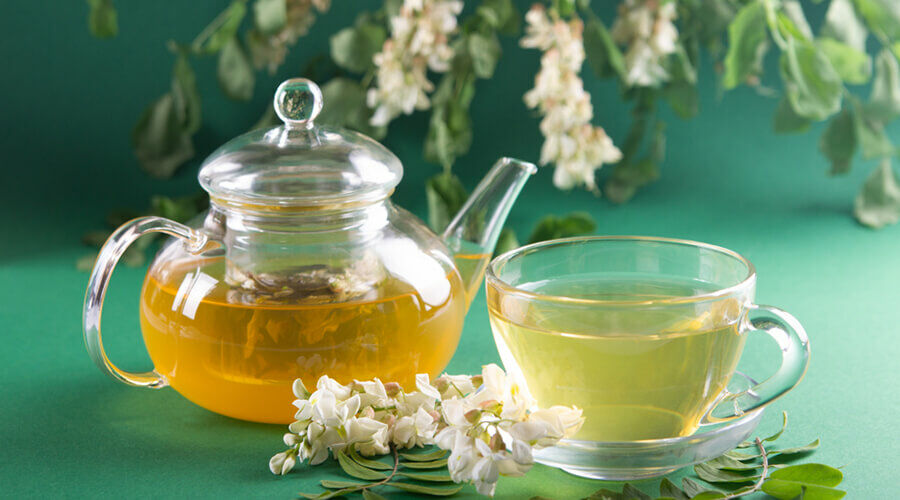
White acacia blossom tea has many beneficial effects.
The white flowers of the white acacia blossom have a distinctive, sweet-smelling fragrance.
It can also be used in other teas as a flavour enhancer.
The white acacia is a tree species native to Hungary, which has been scientifically proven to have a very effective antispasmodic effect. It is also able to stabilize and restore the acidity of gastric juice and reduce acid production, while reducing the tightness of the stomach wall.
The effects of white acacia tea or what is acacia tea good for?
White acacia blossom tea has a very good cough suppressant effect. For a mild cough with a cold, it is recommended to drink two cups of tea a day for 1-2 weeks. The decoction of its flowers has a mild antispasmodic effect. Its leaves are used in folk medicine as a diuretic and as an antihypertensive. It is also used as a mild diuretic and laxative. Its tea is also an effective expectorant, antispasmodic, sedative and tonic. It is recommended to be used alternately with St. John’s wort in cases of stomach and duodenal ulcers. As a course of treatment, it is recommended to drink one cup a day until the existing problem is resolved.
Preparing the tea
Drying white acacia blossom can be done at home, but we recommend the high quality HillVital white acacia blossom drying plant. Boil about 3 grams (a tablespoon) of tea leaves in 2.5 dl of water, then strain after 15 minutes and you’re ready to make white acacia tea.
Use of tea
One cup is recommended in the morning for diuretic purposes and one cup in the evening for defecation. For stomach acid overproduction, 1 cup of tea per day is recommended.
Side effects of white acacia tea are not well known, but there are some contraindications.
It is not recommended during pregnancy, breast-feeding or for children under 12 years of age.
The active ingredients of white acacia are found in the flower. In the past, the bark was used to treat stomach and intestinal ulcers, but it has now been discovered that the bark contains toxic substances and is therefore not recommended.
Can acacia blossom tea be consumed by children?
There are some things to consider before drinking acacia (Robinia pseudoacacia) tea, especially for children. Acacia blossom tea has traditionally been used to relieve coughs and sore throats, and is also used to treat sleep problems caused by nervousness.
For children, it is important to take their age into account. Most paediatricians recommend that children under the age of one should not be given herbal teas unless their doctor or pharmacist recommends otherwise. If a child is old enough to drink herbal tea, make sure that they are given it in moderation and do not overdose. Acacia flower tea can also have a strong taste, so not all children may like it.
Before giving any herbal tea to your child, it is a good idea to consult a paediatrician or pharmacist. They can advise on the correct dosage and possible side effects.,


